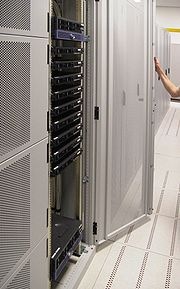What is HTTP in all the web site URLs / web page addresses you see everywhere online?
HTTP Explained: Just like people communicate with each other following certain protocols, HTTP is the protocol between the client (your computer using web browsers) and the server (web server serving web pages and similar online resources).
So what does HTTP stand for?
HTTP stands for HyperText Transfer Protocol. It’s what browsers and web servers rely on for exchanging data so that you can surf the web, browse web pages, search Google, download pictures, and viewing YouTube. Developed by W3C and IETF in the last few years of the last century, it’s part of a bigger protocol family created to support the whole Internet, called TCP/IP. As a subset, HTTP’s responsibility is the World Wide Web or WWW.
By HTTP definition and usage, it’s fundamentally an information exchanging procedure standard between 2 communicating parties or computers, such as the client and the server. While you type a URL address in the web browser, the browser will have to know the protocol to use when fetching the remote resource such as a web page or a picture at that address. Failing to do so, as we most of the time would do without the http:// part, the browser will assume HTTP by default and prepend it to the URL address.
What does HTTP mean in a web address URL?
A web address representing an access point on the web almost always start with http://, immediately followed by the web page address such as in this one:
http://www.google.com/This is the root web site address of Google. And browsing to it, the server located at the address would serve up the home page of Google. This is all beyond the meaning of HTTP however, what this basically means is that, a web address consists of 2 basic parts:
- Protocol (HTTP)
- Address (WWW.GOOGLE.COM)
To understand HTTP and HTTP’s meaning, imagine your need to talk to someone. You will have to get his physical address and then you need to know the language he speaks (or any other possible routines you are expected to follow in order to talk to him instead of being rejected by him). And the role of language here is what the protocol of HTTP is playing in online addressing.
Why is HTTP important?
 HTTP as a protocol is just part of a bigger protocol family that has been developed to make the whole Internet possible. Every second, billions of computers are communicating and exchanging data across the gigantic network, however, physically limited telecommunication facilities make it necessary to have rules.
HTTP as a protocol is just part of a bigger protocol family that has been developed to make the whole Internet possible. Every second, billions of computers are communicating and exchanging data across the gigantic network, however, physically limited telecommunication facilities make it necessary to have rules.
Just like a huge metropolis with millions of cars. Wouldn’t it be a total mess should there be no traffic rules and regulations? It’s the same with the Internet. Without protocols like HTTP, it’d be a nightmare and all of this will be completely impossible.
That said, not only HTTP is indispensable for the Internet and WWW, but all other protocols are as important in Internet communications, albeit in less uses.
What is HTTPS and what does HTTPS stand for?
HTTPS stands for HyperText Transfer Protocol Secure and is a secure version of HTTP. It’s basically an encrypted HTTP channel that encrypts all the information being exchanged, making transferring of confidential information secure from eavesdropping.
Does HTTP have peers or sisters?
Definitely. And FTP is one of them. You may have seen URL addresses similar to this:
ftp://ftp.xxxxx.comWith a ftp:// preceding, browsers would know it’s the FTP protocol that it needs to initiate the download.

Pingback: Use Relative Protocol URL Address to Automatically Determine Web Address Protocol (HTTP or HTTPS)
Hello i wounder what does php stands for? like if its on http://www.google.com.php what is php?
PHP is a template processing language that programmers use to write web pages (that websites consist of). Is this answer good enough? 😉
what does browser stand for? please help thanks i lovee youuxx
A browser is a web browser such as the one you are using right now to make that comment – IE, Firefox, Opera, Chrome, Safari, etc.
PHP originally stood for “Personal Home Page”, it is now said to stand for “PHP: Hypertext Preprocessor”.
Yep, that’s correct. It’s one of the most popular programming language right now. Tens of millions of websites are powered by PHP.
Pingback: Why API is a poor choice over MySQL
Pingback: Make Firefox to Not Send HTTP Referer (or On a Per-Site Basis)
Hw can some one create an web adress
You mean a website for you that you can publish stuff on it? You can get a blog of such nature at blogspot.com and wordpress.com.
thank you for explaining what http: means…….been using it for years and never
was curious about understanding it until now. You did a wonderful job explaining it
and didn’t get too technical which drives some of us crazy as it’s “all Greek” to us.
Thanks againh.
more like “it’s all ‘geek’ to us” XD
Pingback: HTML5 and the Future of the Web | DesignFollow
Thanks Yang.
hi mr yang
i am under coure of Diploma in computer hardware so with this i want to learn movie editing where i do some and hav some knoledge on editing but at present i am using ulead 11 plus to do editing
now plez can u suggest me the best editing software